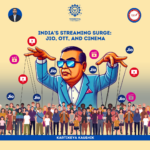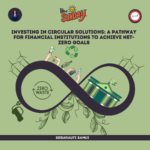-By Shruti Dhumal & Ryan Rego (SIES College of Management Studies, Mumbai)
INTRODUCTION
Conventionally under traditional finance, it is assumed that people are rational and make logical decisions while investing and that they are unbiased when it comes to determining the price of a security. However, that is not usually the case. There are certain psychological and emotional factors that influence investors. Many times, investors derive their own set of rules that supposedly govern the movement of a particular stock which is also known as heuristics.
Behavioural finance is a field that combines psychology with economics and finance to try to provide explanations as to why a person takes an irrational decision
ROLE OF BEHAVIOURAL FINANCE IN STOCK MARKET
It can always be seen in the stock market that emotions and not the fundamental or technical changes are the reasons for the sudden short-term changes. It might be observed in such cases that whenever an analyst is questioned as to why the market was up/down, he/she doesn’t have a specific reason. It’s actually the euphoria or fear amongst the people that drive the market. Investors think irrationally and tend to make cognitive errors. Due to this tendency, it can be concluded that markets cannot be efficient when it comes to information.
Investor’s emotions and their behaviour play an important role in every step of their investment portfolios. At the time of portfolio building, it is important that investors discard their traditional heuristics of their wealth building processes. For long-term investments, it is necessary that the investors have long term perspective rather than short term emotion driven decisions. Sometimes people tend to react collectively because the others are behaving in a particular manner. It could be due to the occurrence of sudden events such as the Brexit. All such reactions are short term and people should not be carried away by the collective emotional decisions of the crowd.
Hence, wisdom is accepting the reality rather than thinking how it should have been.

Figure 1: Sensex growth May-June 2017
The above graph shows the Sensex graph for the month of May 2017. One can clearly see a drastic rise in the Sensex since 25th May 2017 and 2nd June 2017. The stock market has been attaining new heights every day. And every moment we tend to see more euphoria driven results.
One can notice a similar phenomenon in the Bitcoin market; one of the main reasons for the Bitcoin boom is that it has been hyped up to a great extent.
An increasing number of investors are also hopping on the Bitcoin wagon and investing due to the fear of missing out on opportunities. This drive creates more momentum thus creating a snowball effect. Bitcoin prices shot up by more than 120 percent in 2017, after gaining 125 percent growth in 2016. Recently Bitcoin has been increasing in the 4000 and 5000 level which is a whopping growth rate.

Figure 2: Bitcoin prices’ variations
On 29th August, 2017 Mumbai faced a heavy downpour followed by floods and the citizens were panic-struck. This incident instilled fear in the minds of Mumbaikars, because of which they opted to stay home the next day despite there being no rains. This is a typical behaviour observed even in the case of investors during market cycles-sell when there is panic in the market, but don’t buy when share prices have reached an all-time low because of fear.
Another example would be the recent missile firing by North Korea towards Japan. Japanese markets were down by only 0.45%, India’s Sensex on the other hand, fell down by 1.2%.Behavioural finance also explains the occurrence of asset bubbles, one of the most famous bubbles that occurred was the American housing bubble in 2006.
CONCLUSION
Behavioural finance tries to identify and study the irrational behaviour of the masses with the hope of correcting such irrational behaviour.It also seeks to provide measures to identify and possibly prevent asset bubbles from occurring and curb the unwanted speculations which ultimately lead to losses.














Leave a comment